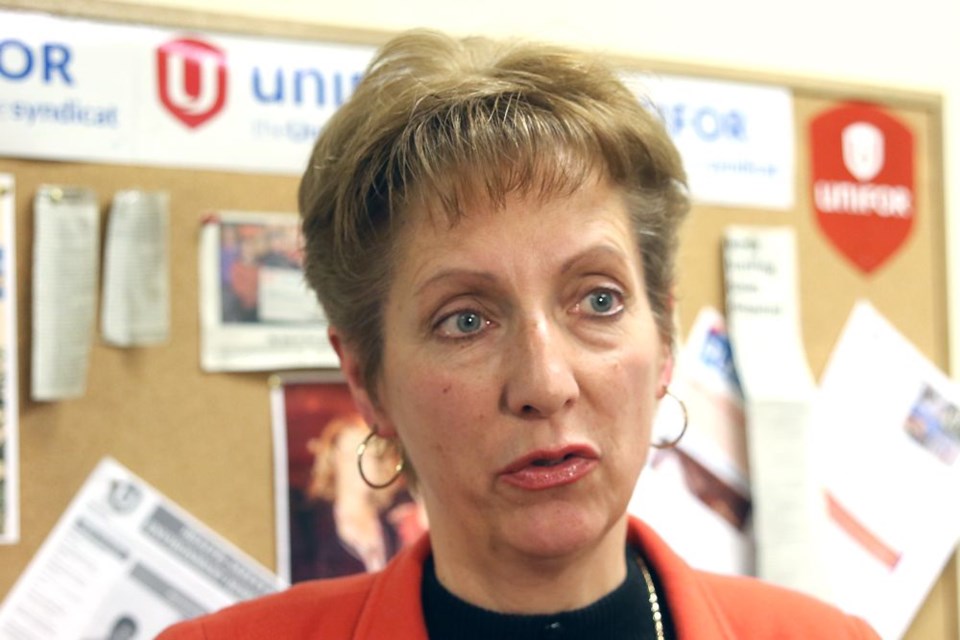Nickel Belt MPP and NDP health critic France Gélinas rose in the legislature on Thursday to highlight the issues in Ontario’s home care system and to question the direction the province is taking in trying to address those issues.
“Does home care need to be reformed? Absolutely! Our home care system fails more people than it helps, every single day,” Gélinas said to open her remarks. “We are nearing the end of the fiscal period that will end on March 31. Right now, it doesn’t matter where you score on your needs base assessment; it doesn’t matter that you would need help every single day to get out of bed, to get dressed, to get fed, to be respected in your home.
“If you live in my community, the only thing you will get are two baths a week. That’s it. That’s all. Why? Because the LHINs, who fund home care, don’t have any money left until the new budget comes on April 1.”
Part of the way to fix the system, Gélinas argued, is to change how personal support workers (PSWs) are treated. She said most PSWs work on contract because much of the system has been privatized, which doesn’t afford them the basic benefits or job security of workers in other sectors.
“Our home care system is broken. How do we fix it? Well, in part, by making PSWs — those are the majority of the workers in our home care system — by making PSW jobs good jobs,” she said. “Offer PSW full time jobs at a living wage with a few benefits, and a reasonable and safe work load and problem solved!”
Part of the reason there is a PSW shortage, Gélinas said, is the pay and working conditions for those in the field are terrible.
“When you work for home care — lots of very well-trained, skilled, very good PSWs work for home care — it doesn’t matter how hard you work; it doesn’t matter if you get up at 5 a.m. and travel all over Nickel Belt until 9 o’clock at night. You will not make a living wage,” she said.
“PSW working in home care, work part-time; because they’re paid barely over minimum wage; because they have no benefits; because they have no pension plans; because they have minimum reimbursement for the time and the mileage they spend between homes. “
If Ontario is serious about fixing the home-care system, the government needs to start with what she calls the most “glaring problem”: recruiting and retaining a stable workforce.
“Continuity of caregiver brings continuity of care which brings quality of care. None of this is in the bill,” she said.
A major issue with the system Gélinas acknowledged the province is trying to tackle concerns care co-ordinators. These are the Local Health Integration Network staff members who are supposed to help connect clients with the correct services. But, given the fiscal restraints, often short-change people in need, she said.
“Do you know what care co-ordinators have been doing, really? They have been rationalizing care. They have been looking at the few dollars that they have and not saying, ‘What is it that this person needs to stay home?’; they have been looking at, ‘What is the minimum we can give this person so that we make sure that our budget goes until March 31?’ ” she said.
The province’s plan to move the care co-ordinators out of the LHIN and into the hospital, so the appropriate home care services can be set up prior to a patient’s discharge from hospital is a good one, Gélinas said. But if the issues with PSWs aren’t addressed, that change won’t make much of a difference.
“What’s the point of it if, at the end of the day, what you need has nothing to do with what you will get? All you get is two baths a week, no matter what your needs are. You’re actually lucky if you get those two baths, because I guarantee you that for one of those two, the PSW will phone in to say that she can’t make it, that she has been booked elsewhere.”
Gélinas wondered why the SEIU Healthcare union, which represents more than 60,000 health care workers in Ontario, weren’t consulted when the province planned its home-care overhaul. With this kind of approach, she said, it’s no wonder the Ford government’s bill is off the mark, she said.
“What we have right here in front of us are huge changes that don’t address the main problem we have in our home care system. The fundamental changes that need to happen are not there,” she said. “We can agree that better co-ordination is necessary, but what’s the point if, at the end of the day, there is no money to give you the home care you need? So I will try to work as best I can, but I have lots of doubts.”
